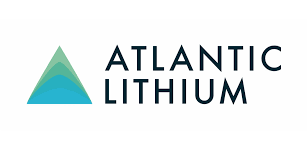Atlantic Lithium has suspended its Ghana project as a worker was killed in an on-site accident on Wednesday, reports have said.
The worker wwas killed whileworking at the company’s Ewoyaa Lithium Project site in Mankessim, in Ghana’s Central Region, forcing the Australian-listed company to suspend operations at what is set to become the West African nation’s first lithium mine.
The incident occurred on July 9 at the project site in Mankessim, located in Ghana’s Central Region. Atlantic Lithium, which trades on the AIM, ASX, GSE, and OTCQX, announced the fatality in a statement on July 10.
Neil Herbert, Executive Chairman of Atlantic Lithium, said, “We are deeply saddened by this tragic event. Our thoughts and deepest sympathies are with our teammate’s family, friends, and colleagues.”
The company has notified relevant authorities, and an investigation is underway to determine the cause of the incident. Senior executives have been dispatched to the site to oversee the process.
Atlantic Lithium has committed to incorporating any lessons learned from the investigation into its health and safety protocols. The duration of the operational suspension remains unclear.
The Ewoyaa project is crucial to Atlantic Lithium’s ambitions in the region. A recent Definitive Feasibility Study projected the production of 3.6 million tonnes of spodumene concentrate over a 12-year mine life, potentially making it one of the world’s largest spodumene concentrate mines.
This incident comes at a critical juncture for Atlantic Lithium, which was awarded a mining lease for the Ewoyaa project in October 2023. The company has been developing the project under an earn-in agreement with Piedmont Lithium Inc.
The fatality raises questions about safety standards in Ghana’s nascent lithium mining sector. It may also impact Atlantic Lithium’s timeline for bringing the Ewoyaa project into production, a key milestone in Ghana’s efforts to capitalise on the global surge in demand for battery metals.

